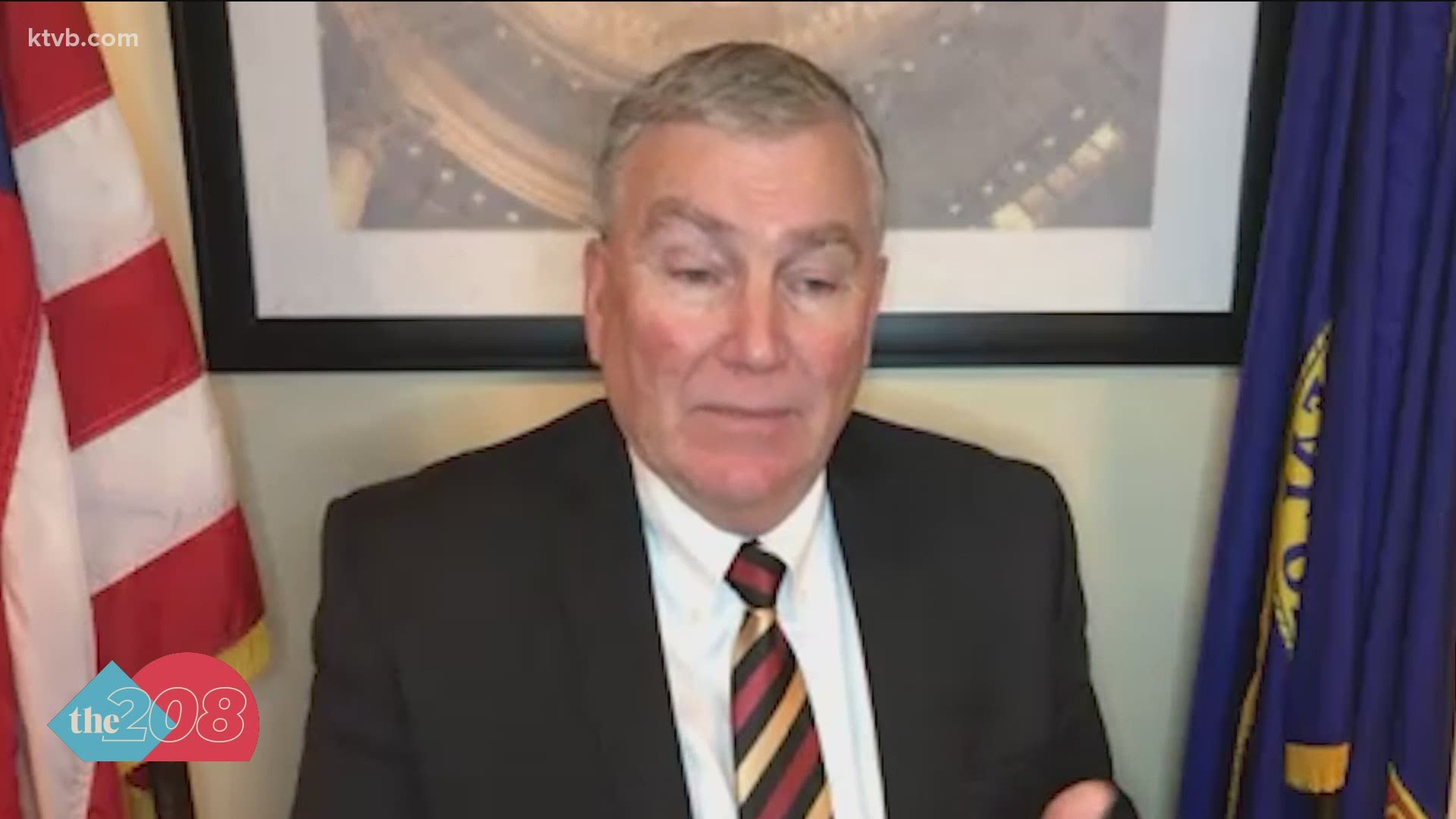BOISE, Idaho — House GOP leadership told KTVB on Friday they want to be perfectly clear, they are not working to end the current COVID-19 emergency declaration in Idaho.
“We have no intention of inhibiting the rollout of the COVID-19 vaccine or prohibiting the national guard to assist in that endeavor. We are not about removing federal assistance to Idaho families or any individuals or small businesses. That’s not what this is about, no way no how that’s not true,” House Speaker Republican Scott Bedke explained.
Speaker Bedke said there are other things lawmakers want to address, but it is early in the session.
“There is a lot of drafts out there that people are taking and running with but there are no bills that are cued up,” Bedke said.
Rep. Bedke (R-Oakley) acknowledges there has been language in bills early this session that initially might have taken the governor’s emergency declaration on but now it’s off the table and bills are being reworked.
Right now, House Republicans are working to draft bills that address major issues they saw arise from the handling of the pandemic, like how billions of relief dollars were distributed without the involvement of the typical legislative process.
“The legislature is to appropriate money, not the executive branch. So, when we get money that comes into the state unexpectedly, that should be legislative action. The Governor is in the middle of the legislative action, but he is not unilateral at that point,” Bedke said.
Another area they are focused on is health orders, which are being put aside not from the governor, but how the state should handle orders from the Department of Health and Welfare, district health boards, and individual cities. Republicans are making the case for a very localized approach, they argue it should not be one size fits all.
“Some of our changes would allow for the locally elected officials to modify and or opt-in or opt-out on their local situation,” Bedke said.
Additionally, the House GOP wants to clarify that they believe the governor should have the power to use an emergency declaration, but continually renewing it for months is something the legislature should weigh in on.
The third area the House GOP is focused on is the governor’s ability to change the Idaho code during an extreme emergency. That was done last May to change how elections were done. They believe those should be changed in the standard law-making format, not unilaterally.
“In order to have the authority to change election law you had to tap into the martial law part of our statutes and that is a bridge too far,” Bedke said.
Bedke said again they are not looking to grab power from the governor but to keep the government balanced during important times.
“Maintaining a check and balance system at all times not just when, in Idaho’s case, for the three months we are in session,” Bedke said.
Bedke has said for months that the pandemic stress-tested Idaho laws and showed where he believes changes need to be made He pointed out that some laws have been on the books for decades and were initially passed during a time where the fear of a nuclear war was on the minds of lawmakers.
“So these were drafted in the late ’50s and early '60s so that was the sentiment nationally,” Bedke said. “Shame on us, shame on the legislature for letting these laws sit on the books for 50 years. We will own that but now we’ve found out when we stress-tested that system and that’s what we are about, is making the needed changes so it works more seamlessly than it did this summer.”
Idaho lawmakers are also working on legislation to call themselves into session if necessary. That legislation proposes a constitutional amendment that would be up for voters in 2022.
Join 'The 208' conversation:
- Text us at (208) 321-5614
- E-mail us at the208@ktvb.com
- Join our The 208 Facebook group: https://www.facebook.com/groups/the208KTVB/
- Follow us on Twitter: @the208KTVB or tweet #the208 and #SoIdaho
- Follow us on Instagram: @the208KTVB
- Bookmark our landing page: /the-208
- And we also turn each episode into a podcast or Podbeam
- Still reading this list? We're on YouTube, too:

